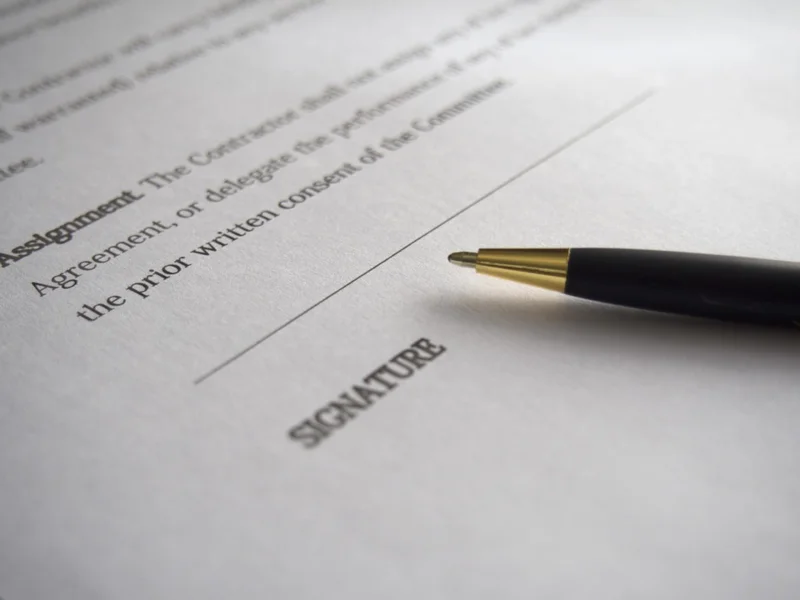A study has found that more than 80% of employers conduct background checks on potential employees. This is not surprising, as many businesses are now aware of the importance of performing these checks. A bad hire can be costly for a company, so it is important to take every step possible to ensure that you are hiring the best possible candidates. This post will discuss background checks and explain why businesses use them during the recruitment process.
Table of Contents
Do Most Companies Conduct Background Checks?
Most companies will conduct some form of background check on job applicants, although the extent of the check will vary depending on the position and the company policy. For example, a company might only run a basic criminal check for an entry-level position but do a more extensive check for a senior executive role. The background check level will also be influenced by factors such as the industry, company size, and location. For example, companies in certain industries (e.g., healthcare, finance) are subject to stricter regulation and may therefore be more likely to conduct comprehensive background checks. In general, larger companies are more likely to have the resources to conduct more thorough checks than smaller businesses. Finally, employers in certain states (e.g., California) are subject to additional background check requirements.
Why Do Employers Conduct Background Checks?
There are several reasons why employers might choose to conduct background checks on job applicants. The most common reason is to ensure that the applicant is honest and trustworthy. A background check can reveal information about an applicant’s criminal history, financial history, and employment history. This information can help employers to identify red flags that might indicate that an applicant is not a good fit for the position. For example, if an applicant has a history of financial problems or criminal convictions, this could be a sign that they are not reliable or trustworthy.
Another reason why employers conduct background checks is to protect their employees and customers from harm. For example, if an employer is hiring for a position that involves working with children, they will want to make sure that the applicant does not have a history of child abuse. Similarly, if an employer is hiring for a position involving handling money, they will want to ensure that the applicant does not have a history of financial crimes.
Finally, employers might also conduct background checks to comply with laws and regulations. For example, some states require employers to run background checks on job applicants who will be working with vulnerable populations (e.g., children, the elderly).
What types of information is included in a background check
The types of information typically included in a background check include employment history, education, criminal records, and credit history. Employers may also request a copy of the applicant’s driving record or perform a drug test in some cases. The exact nature of the background check will vary depending on the employer’s needs and the position being applied for.
How do companies conduct a background check?
The employer will typically contact the applicant’s previous schools and employers to verify the applicant’s education and employment history. They may also ask for references from the applicant’s professional or personal network. To check for a criminal record, the employer may run a search on national databases or contact local law enforcement agencies. Finally, if the employer considers extending a job offer, they will often conduct a final interview with the applicant to understand their character better.
The benefits of using background checks during the recruitment process
While some job seekers may view background checks as an invasion of privacy, there are actually many good reasons for employers to conduct them. For one thing, background checks can help to ensure that the person being hired is qualified for the position. They can also help to prevent fraud and other types of criminal activity. In addition, background checks can help to protect the safety of employees, customers, and other business partners.
How to protect yourself from inaccurate or damaging information on a background check
There is always the potential for inaccurate or damaging information to appear on a background check. As a result, it is important to take steps to protect yourself from this possibility. One way to do this is to request a copy of your own background check from the company that performed the check. This will allow you to see what information is being reported about you and correct any inaccuracies. You should also carefully review any documents you are asked to sign during the hiring process. If you see anything that raises concerns, do not hesitate to ask questions or request clarification.
Conclusion
In conclusion, the majority of employers do use background checks as part of their recruitment process. However, there are a number of factors that can influence whether or not an employer will choose to conduct a background check on a particular candidate. For example, factors such as the nature of the position, the company’s size, and the geographical location can all play a role in determining whether or not an employer will require a background check. Job seekers need to be aware of these factors and inquire about them prior to applying for any positions.
Read also: How to Use Social Media for Your Recruitment Brand?

